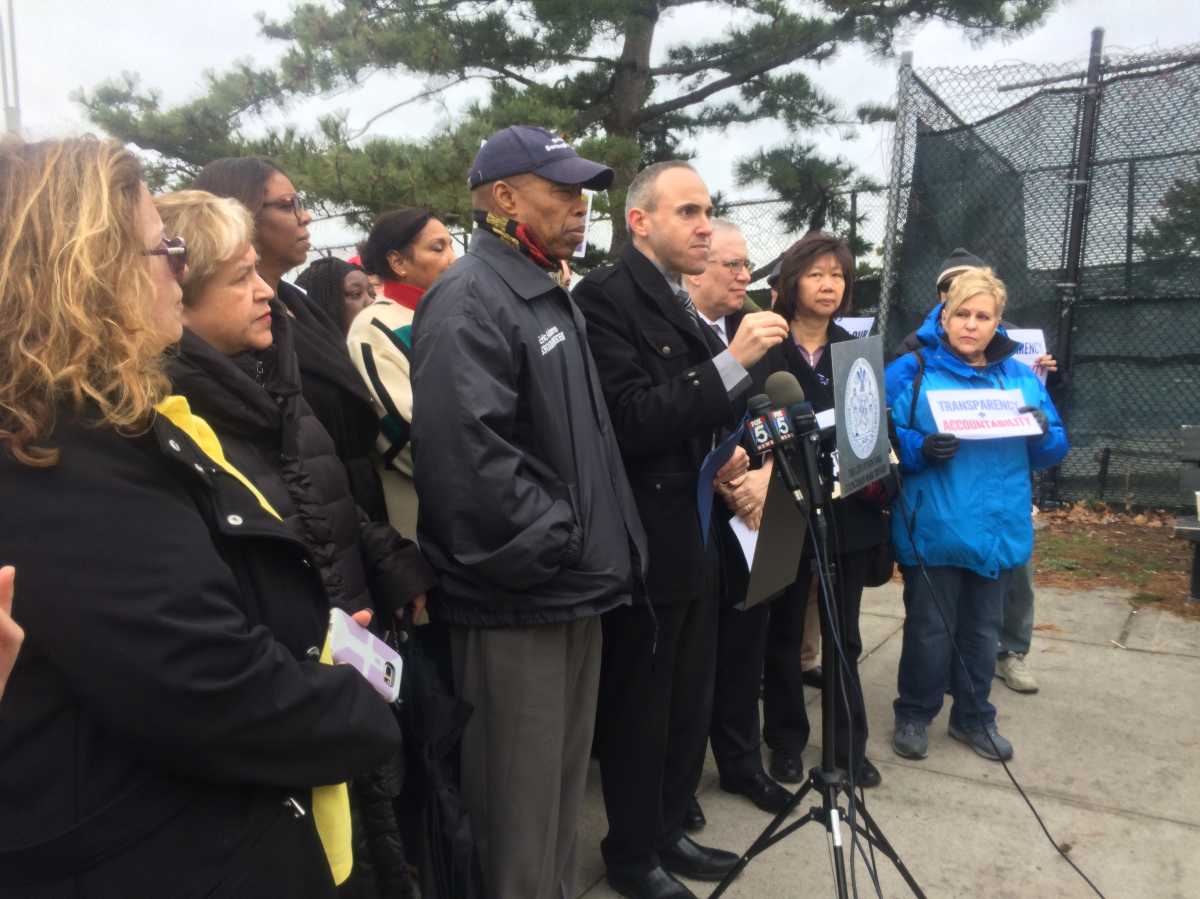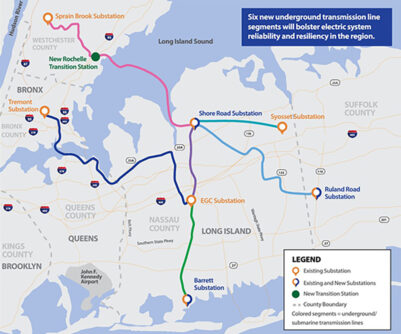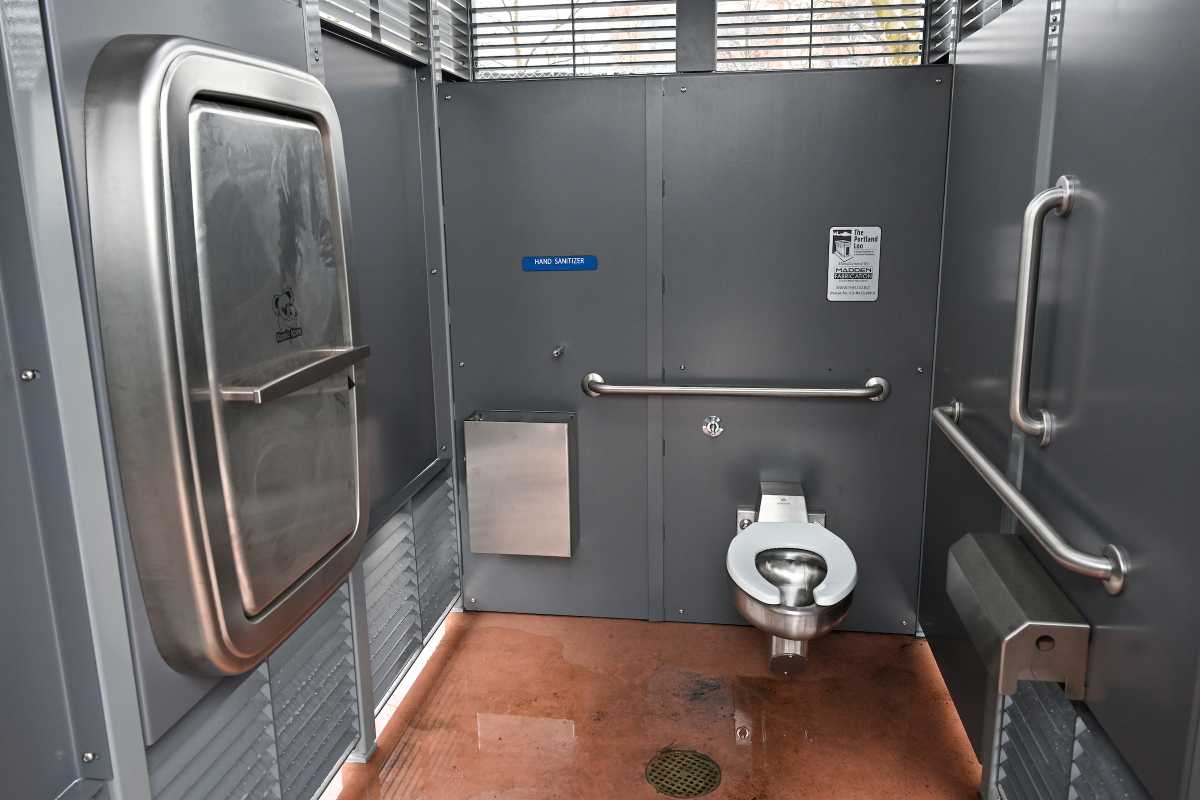More than a dozen environmental activists, water conservationist and elected officials gathered in Gravesend Bay earlier today to condemn the spill of 27,000 gallons of diesel fuel that occurred last week.
Bayside Fuel Oil Depot is the party responsible for the oil spill. They have yet to make a public announcement even though the spill occurred on March 30.
City Council member Mark Treyger (D-Coney Island, Bensonhurst, Gravesend) along with Brooklyn Borough President Eric L. Adams, Public Advocate Letitia James and City Comptroller Scott Stringer only found out about the spill yesterday through an accidental email chain with environmental advocates.

“Just a few days ago my office and others were notified through a group email from advocates, not from the responsible environmental agency but through advocates that a 27,000 gallon oil spilled occurred in Gravesend Bay,” said Council Member Treyger.
According to the Coast Guard Report, the spill was due to human error, “there was an operator error that caused a spill of ultra low sulfur diesel during a fuel transfer at the facility” at 2:45 a.m. last Thursday. As a result, Council member Treyger is demanding that a full investigation take place to examine the cause of the spill, the exact reason that the spill occurred, how to prevent future spills, how is the spill cleanup being handled and how are environmental agencies (EPA, NYC Department of Environmental Conservation) working with elected officials to manage the situation.
“Stop dumping on us! I find it absolutely outrageous and unbecoming that an agency titled the department of of environmental conservation, that they have failed on all fronts to protect the environment and public health in this area and they have failed to properly notify this community of their efforts to keep us safe,” said Council Member Treyger.
Currently Bayside Fuel Oil Depot is attempting to contain the situation through an extensive cleanup process by shrouding the oil in plastic and vacuuming-up oiled water. There is no telling yet the impact of the spill on the local ecosystem or fish market.
Ida Sanoff, Director of Natural Resources Protective Association, thinks that the spill could have a devastating effect on the local fisheries and seafood markets.
“There are many ethnic markets where live fish are prized, you’ll see some tautog, some flounder and some bass that very likely came from this area. If you are shopping in a fish market locally, a lot of the fish came from here. So anything that happens here ends up in the food chain. People say, well it was a “small spill”, it’s not so much the magnitude but the accumulation. These toxins stay in the ecosystem and in the food chain and we don’t know if we’re eating them, said Sanoff.
This is not the first time that Brooklyn water resources have been contaminated. Last fall, NYC DEC notified the community at a meeting that 200,000 gallons of raw untreated sewage was being dumped into Coney Island Creek on a daily basis by Beach Haven Apartments for an undetermined amount of time. DEC and DEP (Department of Environmental Protection) failed to publicize this information despite being aware of the issue for about two years. DEC continues to be vague about their plan of action for the Creek and how they plan to hold the party responsible accountable.
Comptroller Stringer said his office will commission his audit investigation unit to commence a full investigation into the spill due to the lack of communication from the EPA and NYC DEC.

“We need a clear plan to clean up Gravesend Bay and a clear course of action for the Bayside Oil Fuel Depot. We have to make sure that this never happens again. Since the 1970’s Bayside Fuel Depot has been cited for seven oil spills, and it has got to stop. Today I am asking my Audit Investigation Unit to commence a top-to-bottom review of procedures as it relates to communications, clean up, and to holding these oil companies accountable. We need a resiliency plan and a preventive plan. This community can not turn into a toxic dumping ground,” said Comptroller Stringer.
NYC DEC is not required to make a public announcement about the spill. Any spill of five gallons or more is legally required to be reported.
State DEC officials claim they reached out to the Mayor’s office and Treyger’s office earlier this week.
The EPA contacted U.S. Congressman Dan Donovan on March 30, though the EPA’s assistance was not requested by the lead agency onsite. However, the memo was not intended for public release at that time, according to staff. After hearing about the outrage over accountability, Donovan sent a letter to the EPA questioning their internal communication protocols.
Initial reports are saying that the spill was 27,000 gallons but the actual amount could be more.
“Since the number of gallons spilled is an initial estimate, other factors become more important for immediate containment. “It’s not so much a question of how much oil was spilled, but what it’s going to hit and when,” said Frank Csulak at the National Oceanic & Atmospheric Association (NOAA).










